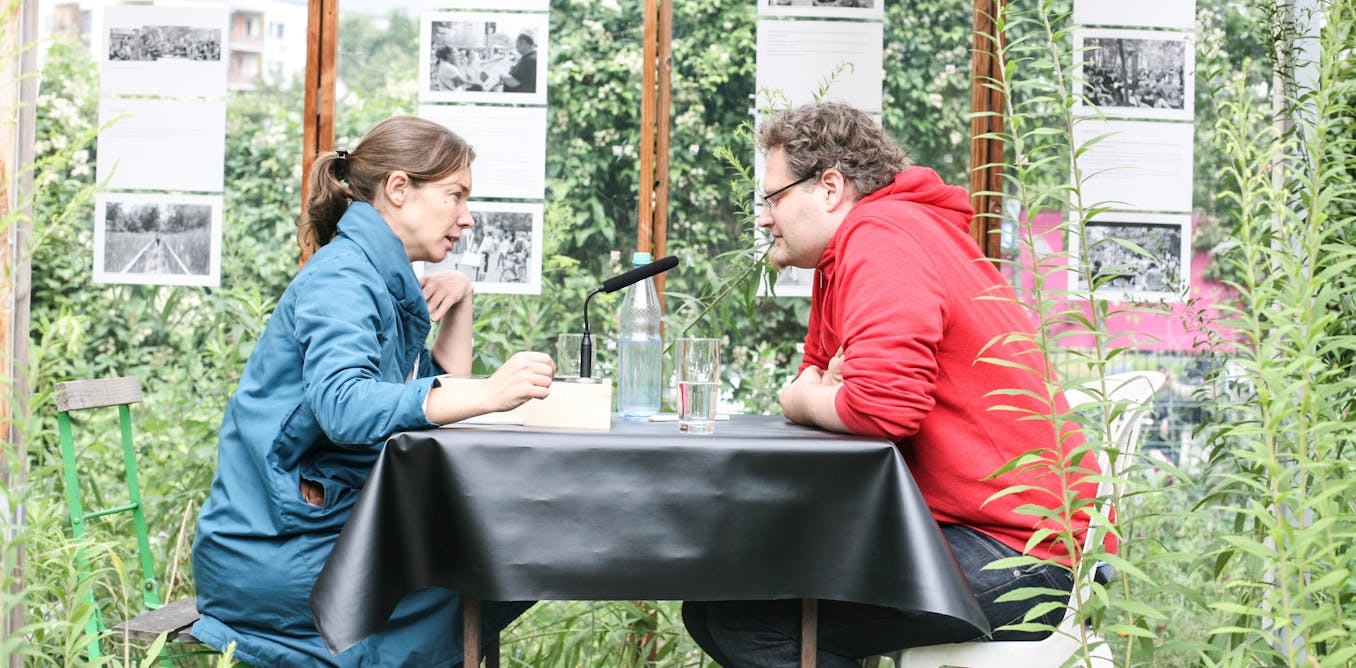[ad_1]
Web entry has flip into such a needed gadget for taking part in society that it has been declared a “human appropriate” by the UN. Alas, it’s a human appropriate not granted to 60% of the world’s inhabitants.
To bridge this hole, huge companies akin to Fb or Google painting themselves not solely as service suppliers, nonetheless in addition to as web suppliers. Fb, for instance presents free web entry in deprived areas of India, or at the very least entry to a small a part of the web thought-about “primary” (together with entry to Fb, in precise truth).
On the equal time, Fb has the ambition to “be a part of the world”, to “perceive intelligence and make clever machines”, and even to “therapy all sicknesses in our youngsters’s lifetime”.
The platform is making a new map of all individuals on the planet, whereas experimenting with the prospect of manipulating of us’s emotions through the curation of their data feeds.
In course of an pure web
In a earlier article, I described neighborhood networks that present quite a few networking selections to megaprojects akin to Fb’s free fundamentals, providing web entry to refugees or communities open air the attain of ordinary web service suppliers.
These DIY networks would possibly very properly be seen as “pure”: they’re created by native communities, mirror native customized, and the information they use will seemingly be generated and consumed inside the equal place.
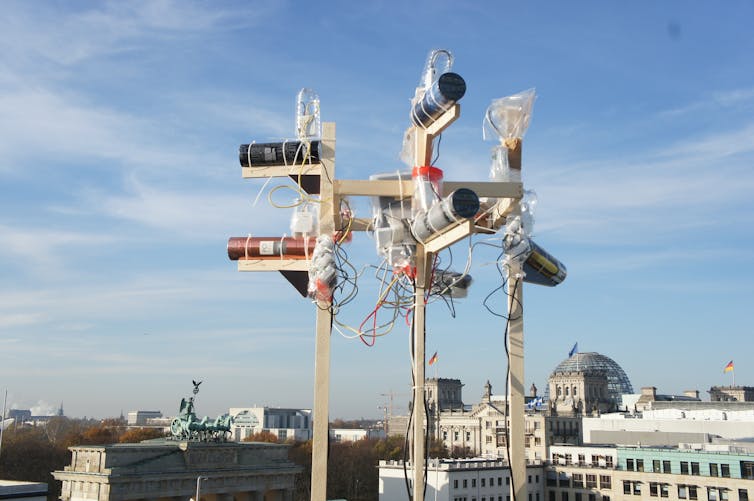
Christophe Wachter & Mathias Jud
DIY networks might even ship of us collectively, face-to-face, as a substitute of preserving them on-line commonly.
Artists and activists have been experimenting with quite a few types of networks, akin to LibraryBox, an e-book sharing group, and the “Are you able to hear me?” organize of short-term antennas pointing to the US embassy in Berlin, broadcasting nameless messages from shut by pedestrians.
Nonetheless we have to search out the essential the explanation why such networks ought to even be promoted as infrastructure for net web internet hosting native companies, constructed and utilized by native communities.
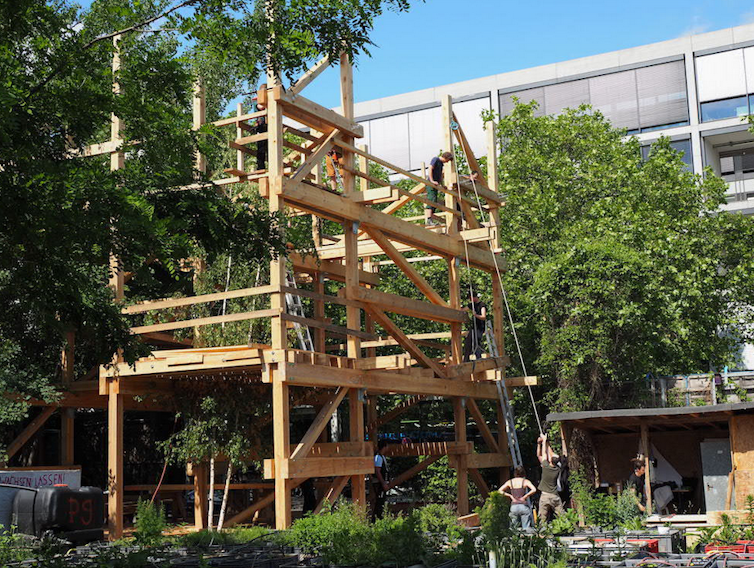
Marco Clausen
The Prinzessinnengarten in Berlin is an environment friendly event of a spot the place DIY networks are designed to carry out “open air the web”.
Activists from the Neighbourhood Academy have created a spot contained inside the yard that targets to vary the ideas of pure and collaborative farming to the realm of networking.
The Neighbourhood Academy is a self-organised open platform for sharing info, customized and activism. Its founders, Marco Clausen, Elizabeth Calderón Lüning, Åsa Sonjasdotter and the Basis Anstiftung purchased proper right here up with the concept of a neighborhood wifi group accessible solely contained inside the yard.
They collaborated with the Design Analysis Lab to assemble the “pure web”, a neighborhood group hooked as a lot as a bodily enchancment, Die Laube (The Arbor), which hosts workshops, seminars and assemblies.
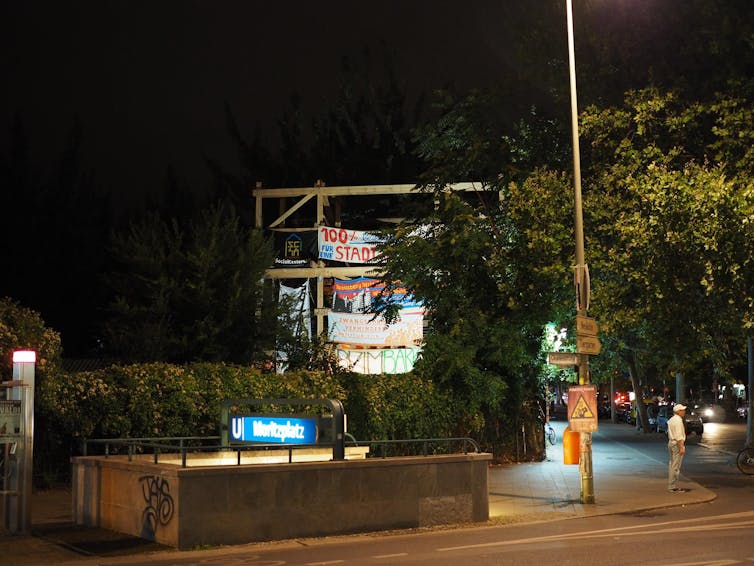
Marco Clausen
The founders wished a option to file and share all the data exchanged by the use of the gatherings of various activists, artists, architects and researchers from completely completely totally different fields and elements of the world who attended the academy. The native DIY networks make the productions obtainable to these, and solely these, bodily current contained within the yard area, and the digital area turns into an integral a part of the yard’s identification.
For the designers at UdK, who’ve been concerned all through the mission, this pilot is a chance to assemble hybrid areas, and alter them into toolkits that will make it simpler for know-how to be appropriated by others.
Alternate selections to worldwide social networks
DIY networking promotes bodily proximity and inclusiveness. Tangibility and playfulness is one totally different essential aspect of the group: it’s all the time there, hanging from a tree.
These duties furthermore require native of us to take care of them, assemble notion, and make collective picks spherical effectivity and use. A DIY group will seemingly be even turned off on occasion.
The duties are based completely on ideas of replication, not progress: others can replicate the equal thought in a selected place by searching for a funds {{{hardware}}} (a Raspberry Pi, wi-fi router, exterior onerous disk and battery) and utilizing self-hosted software program program program for native companies. No investments in larger servers are wished when additional of us be a part of, and there mustn’t any uniform recommendations on design.
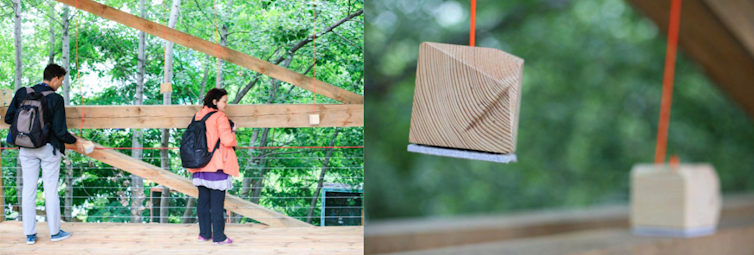
Andreas Unteidig
Defending the commons
Neighborhood networks akin to Guifi.web, Freifunk.web, and Sarantaporo.gr are gaining an increasing number of further consideration on account of the the “completely totally different methodology” to assemble connectivity, whereas native DIY networks an identical to the one in Prinzessinnengarten seem as a beneficial complement, pretty than a substitute, to the usual web for location-based interactions.
However the appropriate to share and additional usually the “appropriate to commoning” faces essential political and licensed threats. For instance, all through the case of group infrastructures, the EU Radio lockdown directive will make it troublesome to make use of various software program program program on internet-enabled units. Civil obligation legislations discourage the sharing of web connectivity.
In mild of those circumstances, the primary European commons meeting met in November 2016, with larger than 100 commons activists from 21 worldwide locations all by way of Europe taking part.
The goal of the meeting is to develop safety choices for collectively managing all types of “commons”, from primary belongings akin to water and vitality, to info, and group infrastructure.
As mega-corporations like Fb dominate our lives an increasing number of further, we must always on a regular basis do all we’re able to to guard the commons and be a part of with our native communities. DIY networking is simply the beginning.
[ad_2]
